Cambridge University (CAM)
Meest recente samenvattingen op de Cambridge University (CAM). Op zoek naar een samenvatting op de Cambridge University (CAM)? Wij hebben diverse samenvattingen voor jouw school of universiteit.
-
685
-
7
-
34
Studies op de Cambridge University (CAM)
Er zijn samenvattingen beschikbaar voor de volgende opleidingen op Cambridge University (CAM)
-
A-Level 2
-
Accounting 2
-
Agriculture economics 1
-
Business 4
-
Cambridge International AS And A Level 1
-
Cambridge University 148
-
Economics 5
-
Electrical Engineering 3
-
General Medicine 49
-
Geography 1
-
Geology 1
-
HEALTH AND DEVELOPMENT 1
-
IGCSE 1
-
IGCSE , AS and A level 9
-
IGCSE Business Studies 1
-
IGCSE Economics 1
-
IGCSE Geography Study Guide 1
-
IGCSE Math Theory notes and Complete Formulas 1
-
Importance of coral reefs? 1
-
Law 94
-
Mathematics 2
-
Medicine 12
-
Nursing 3
-
Physics 10
-
Physics , biology , computer studies , chemistry 1
-
Tourism 1
Populaire samengevatte boeken Cambridge University (CAM)
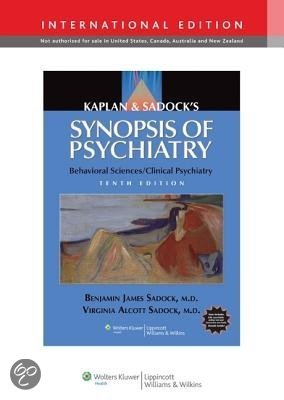
Benjamin Sadock, Virginia Alcott Sadock • ISBN 9781451108644

Paul S. Davies, Graham Virgo • ISBN 9780198727651

Lionel Bently, Brad Sherman • ISBN 9780198769958
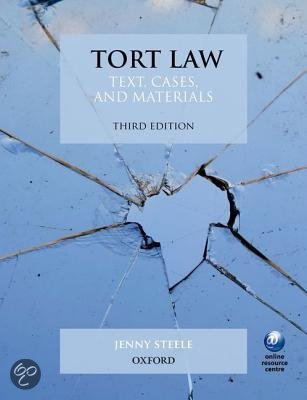
Jenny Steele • ISBN 9780199671403

Ewan Mckendrick • ISBN 9781352005257

Jean-Jacques Rousseau • ISBN 9780141191751

Max Weber, Max Weber • ISBN 9781101098479

Adam Smith, Edwin Cannan • ISBN 9781840226881
Paul Horowitz, Winfield Hill • ISBN 9780521809269

Alison Page, David Waters • ISBN 9780198367215
Nieuwste samenvattingen Cambridge University (CAM)
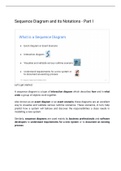
By the end of this session, we should be able to: ● Describe sequence diagrams, ● Explain the benefits of sequence diagrams, and ● Identify the symbols and components used in sequence diagrams.
- College aantekeningen
- • 16 pagina's's •
-
Cambridge University•Software Engineering
Voorbeeld 3 van de 16 pagina's
By the end of this session, we should be able to: ● Describe sequence diagrams, ● Explain the benefits of sequence diagrams, and ● Identify the symbols and components used in sequence diagrams.
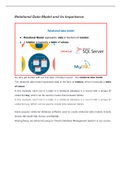
The relational data model represents data in the form of relation, which is basically a table of values. In this example, each row in a table in a relational database is a record with a unique ID called the key, which can be used to create links between tables. In this example, each row in a table in a relational database is a record with a unique ID called the key. Which can be used to create links between tables. Some popular relational database software used to create relational data model...
- College aantekeningen
- • 18 pagina's's •
-
Cambridge University•Databases
Voorbeeld 3 van de 18 pagina's
The relational data model represents data in the form of relation, which is basically a table of values. In this example, each row in a table in a relational database is a record with a unique ID called the key, which can be used to create links between tables. In this example, each row in a table in a relational database is a record with a unique ID called the key. Which can be used to create links between tables. Some popular relational database software used to create relational data model...

geology related and in future may be biologic docs .its all related too earth sciences and geology. biological notes. economic notes, thank you soo much.
- Voordeelbundel
- College aantekeningen
- • 351 pagina's's •
-
Cambridge University•geology
-
geology• Doorzakaullahanwar1
Voorbeeld 4 van de 351 pagina's
geology related and in future may be biologic docs .its all related too earth sciences and geology. biological notes. economic notes, thank you soo much.

White-Box testing It is a test case design approach that uses the control structure (described as part of procedural design) to DERIVE test cases.•We can derive test cases that: a.Guarantee that all independent paths within a module have been exercised/covered at least once. b.Exercise all logical decisions on their true and false sides. c.Execute all loops at their boundaries and within their operational bounds. d.Exercise internal data structures to ensure their validity.
- College aantekeningen
- • 12 pagina's's •
-
Cambridge University•Software Engineering
Voorbeeld 2 van de 12 pagina's
White-Box testing It is a test case design approach that uses the control structure (described as part of procedural design) to DERIVE test cases.•We can derive test cases that: a.Guarantee that all independent paths within a module have been exercised/covered at least once. b.Exercise all logical decisions on their true and false sides. c.Execute all loops at their boundaries and within their operational bounds. d.Exercise internal data structures to ensure their validity.
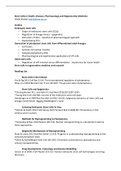
Detailed revision notes from lecture course on stem cells taught by Dr Khaled, University of Cambridge, with additional reading and insights from key publications summarised.
- Voordeelbundel
- College aantekeningen
- • 31 pagina's's •
-
Cambridge University•Pharmacology
-
University of Cambridge (Part II Pharmacology) - Detailed Revision Notes• Doornellymorgulchik
Voorbeeld 4 van de 31 pagina's
Detailed revision notes from lecture course on stem cells taught by Dr Khaled, University of Cambridge, with additional reading and insights from key publications summarised.
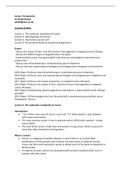
Detailed revision notes from lecture course on cancer taught by Dr Khaled, University of Cambridge, with additional reading and insights from key publications summarised.
- Voordeelbundel
- College aantekeningen
- • 30 pagina's's •
-
Cambridge University•Pharmacology
-
University of Cambridge (Part II Pharmacology) - Detailed Revision Notes• Doornellymorgulchik
Voorbeeld 3 van de 30 pagina's
Detailed revision notes from lecture course on cancer taught by Dr Khaled, University of Cambridge, with additional reading and insights from key publications summarised.
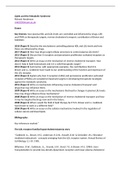
Detailed revision notes from lecture course on cholesterol and metabolic syndrome taught by Prof Henderson, University of Cambridge, with additional reading and insights from key publications summarised.
- Voordeelbundel
- College aantekeningen
- • 36 pagina's's •
-
Cambridge University•Pharmacology
-
University of Cambridge (Part II Pharmacology) - Detailed Revision Notes• Doornellymorgulchik
Voorbeeld 4 van de 36 pagina's
Detailed revision notes from lecture course on cholesterol and metabolic syndrome taught by Prof Henderson, University of Cambridge, with additional reading and insights from key publications summarised.
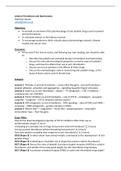
Detailed revision notes from lecture course on thrombosis pharmacology taught by Dr Harper, University of Cambridge, with additional reading and insights from key publications summarised.
- Voordeelbundel
- College aantekeningen
- • 43 pagina's's •
-
Cambridge University•Pharmacology
-
University of Cambridge (Part II Pharmacology) - Detailed Revision Notes• Doornellymorgulchik
Voorbeeld 4 van de 43 pagina's
Detailed revision notes from lecture course on thrombosis pharmacology taught by Dr Harper, University of Cambridge, with additional reading and insights from key publications summarised.
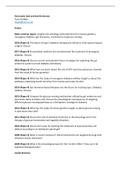
Detailed revision notes from lecture course on the pharmacology of diabetes taught by Prof Gribble, University of Cambridge, with additional reading and insights from key publications summarised.
- Voordeelbundel
- College aantekeningen
- • 36 pagina's's •
-
Cambridge University•Pharmacology
-
University of Cambridge (Part II Pharmacology) - Detailed Revision Notes• Doornellymorgulchik
Voorbeeld 4 van de 36 pagina's
Detailed revision notes from lecture course on the pharmacology of diabetes taught by Prof Gribble, University of Cambridge, with additional reading and insights from key publications summarised.
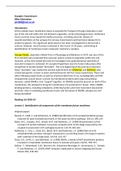
Detailed revision notes from lecture course on nervous system pharmacology taught by Prof Edwardson, University of Cambridge, with additional reading and insights from key publications summarised.
- Voordeelbundel
- College aantekeningen
- • 44 pagina's's •
-
Cambridge University•Pharmacology
-
University of Cambridge (Part II Pharmacology) - Detailed Revision Notes• Doornellymorgulchik
Voorbeeld 4 van de 44 pagina's
Detailed revision notes from lecture course on nervous system pharmacology taught by Prof Edwardson, University of Cambridge, with additional reading and insights from key publications summarised.
